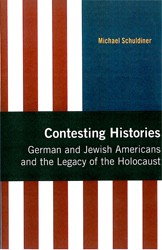As early as 1940, the need for a Jewish army was recognized and strenuously promoted by Zionist Jewish leaders including Chaim Weizmann, who would become Israel’s first president; David Ben-Gurion, who would become Israel’s first prime minister; and Vladimir Jabotinsky, founder of the Zionist Revisionist movement. In the last months of World War II, Great Britain reluctantly permitted the formation of a single Jewish Brigade consisting of 5,000 men, mainly from Palestine, under the command of Brigadier Ernest F. Benjamin, a Canadian-born Jew. In late 1944, the Jewish Brigade served in Italy; they were disbanded in 1946.
Rick Richman has written an important work about the year 1940 as seen through the efforts of Weizmann, Ben-Gurion, and Jabotinsky — who tried but failed to persuade the Allies to form a Jewish army to fight the Nazis.
Following the Nazi occupation of Poland in 1939, and the Soviet Union’s subsequent occupation of eastern Poland, more than three million Polish Jews found themselves in extreme peril. They had no country, no army, no government to fight for them, and — due to the limits placed on immigration by the British White Paper of 1939, and American isolationist policies — no place to find sanctuary.
Recognizing the vulnerability of these Jews, European and Palestinian Jewish leaders advocated for Jews worldwide to enlist in large numbers, to create a Jewish army and fight against Nazism. They wanted to find some means of protecting the Jewish population of Europe, and also felt that a Jewish army would inspire others. An additional effect, as Jabotinsky explained, would be to “upset the ridiculous whispering campaign” spreading the rumor that “Jews want all others to fight in their interest, but they themselves remain at home.’” (This canard was used by Hitler, who claimed that German Jews had shirked their duty by not serving in World War I, despite the fact that more than 100,000 had served at the front and won an inordinate number of medals for their heroism.)
Drawing upon previously unpublished letters, speeches, and diaries from Weizmann, Ben-Gurion, and Jabotinsky, Richman has written a lucid and fast-paced study fit for academics and lay readers alike.




